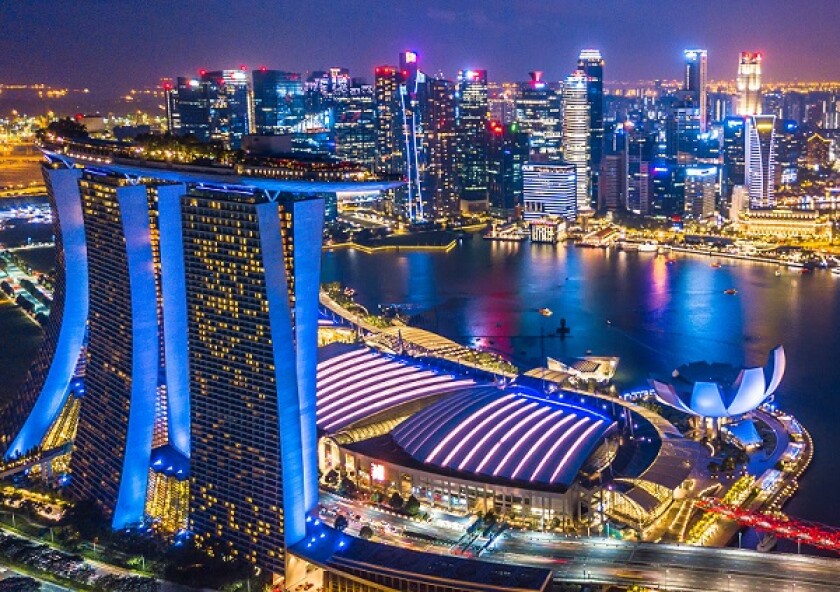UPDATE: Late on the evening of February 14, EST, INTA announced that it will reschedule the Singapore meeting for 2022 and move the 2020 meeting to an unconfirmed location in the US in May or June. More here.
Whichever way you look at it, INTA is in a deep quandary amid the outbreak of coronavirus, now called COVID-19.
Despite the Singapore convention being just 10 weeks from kick-off, INTA’s first annual meeting in Asia since Hong Kong in 2014 is surely at risk of being cancelled if not relocated.
This is not to sound hysterical or scare anyone, but is merely a reflection of the reality on the ground.
Nearly a week ago, on February 7, Singapore’s Ministry of Health (MOH) raised its Disease Outbreak Response System Condition (DORSCON) level from yellow to orange. It means that COVID-19 is considered severe and can spread easily from person to person, although the disruption on daily life is moderate, with some quarantines, screenings and restrictions in place.
More concerning for INTA is that, just one day after the risk level was raised, the MOH issued guidance that advised organisers of non-essential large-scale events to cancel or defer them.
The first question is whether the INTA annual meeting is essential, which could of course be interpreted in different ways. If we agree that it is essential from a business perspective – not just for INTA but for the thousands of people attending, exhibiting and sponsoring – then there is a case for pressing on.
Problems for INTA
The first issue arises when you examine point 3 of the MOH’s guidance: the long list of precautionary measures that event organisers should implement if they go ahead. These include carrying out temperature screening (it is not clear by whom, but presumably INTA and the Sands Expo and Convention Centre would have to arrange this); looking out for respiratory symptoms such as cough or shortness of breath (ditto); and denying entry to unwell individuals (ditto). The list goes on.
If even half the number of people expected to attend showed up, we would be talking about four or five thousand people being observed or screened across five days. It is also unclear who would take the decision to remove someone from the conference or block them from entering.
While some of these measures would not be insurmountable, they would be inconvenient, hard to manage and potentially costly – and would certainly change the dynamic of the meeting (think: no shaking hands allowed, so creative alternatives required).
There could be further problems for INTA if it pushed on.
There will be a large drop in Chinese attendees – presumably the very same people INTA had been targeting when it picked Singapore as part of a push to expand its influence in Asia. This is because, as things stand, Singapore has implemented extremely tight restrictions on Chinese nationals entering or transiting through the city-state. Even if they were lifted between now and April 25, it’s possible that many Chinese people wouldn’t attend anyway.
The same is likely to be true for international attendees: if they are concerned by either the virus or the potential poor turnout, or both, they may vote with their feet. There has been plenty of debate about this on social media.
In financial terms, it’s a no-brainer that having fewer people means less money.
On the reputational front, a quiet annual meeting complete with public health concerns and visible screening could be remembered for the wrong reasons. While this is out of INTA’s control, it could require a significant effort to rid the memories of a meeting blighted by COVID-19 next time the meeting heads to Asia.
What’s the alternative?
Having said all this, the alternatives all seem unpalatable or unthinkable: relocate the conference to the US or Europe at the last minute; defer it to a later date and stick with Singapore; or cancel it altogether.
The first seems doable, albeit it at huge cost and logistical nightmare, but only if a back-up venue can be found or had been on hold already. The second seems unlikely given the unknowable future of COVID-19 and the disruption to the cycle of INTA annual meetings. The third just seems totally unrealistic.
It is hard to see how INTA solves this conundrum in the absence of either COVID-19 being contained soon or Singapore placing a blanket ban on hosting large-scale events – the latter forcing INTA’s hand. This might not seem as crazy as you might think, when you consider how diligent the Singaporean authorities have been in testing for and trying to manage the virus. Singapore is a major international hub and has already been linked to several cases of COVID-19 outside its borders.
If INTA pushes on, it would be following in the footsteps of the Singapore Airshow, which started two days ago, February 11. Despite the organiser’s resolve, however, more than 70 exhibitors pulled out before the show began.
As things stand, there is no need to panic – Singapore’s DORSCON level is the same as it was for SARS, which killed 774 people worldwide (33 of whom were in Singapore) between November 2002 and July 2003.
As of February 13, there are 50 confirmed cases of COVID-19 in Singapore, but no deaths. In fact, all but two of the nearly 1,400 fatalities worldwide have been in mainland China.
But for INTA, which said in its most recent update that it is monitoring the situation closely, the concerns must be immense. The trademark world awaits its decision.
This article first appeared on LinkedIn: https://www.linkedin.com/pulse/coronavirus-logistical-nightmare-facing-inta-2020-ed-conlon/











